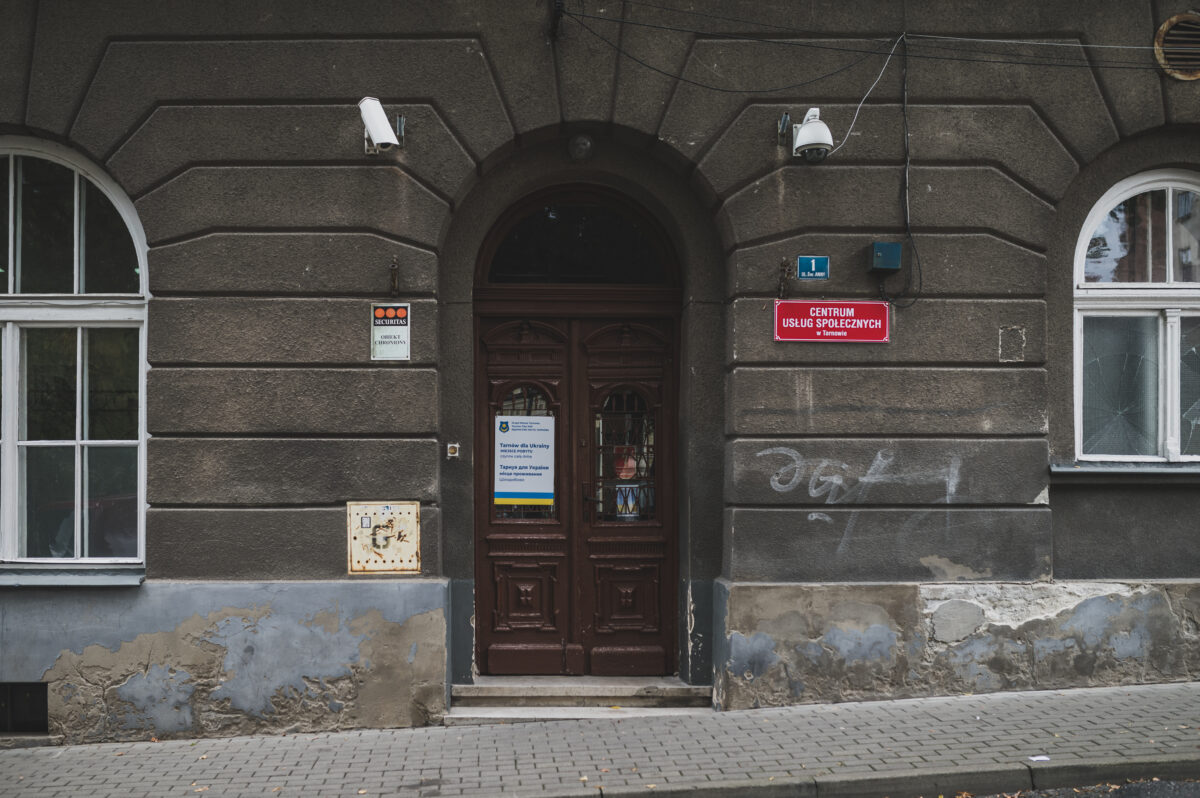Tarnów was a thriving centre of the Zionist movement. Zionist activists promoted their ideas from the second half of the 19th century. Hence, it is not surprising that a school with a Zionist profile was established in Tarnów. Safah Berurah, Hebrew for ‘pure speech’, is the name of the association that was behind this idea. The educational centre started operating in 1923 as a primary school. In 1927, it was transformed into a co-ed school. On the one hand, it had to implement an official curriculum so that its students could acquire secondary education. On the other hand, Safah Berurah’s founders wanted to educate citizens to be aware of their nationality, history, culture and heritage. Hence, while the language of instruction was Polish, subjects related to Jewish history and culture were taught in Hebrew. Today, the building of the pre-war community school is a school dormitory, so it symbolically continues the educational tradition of the place.
Gizela Fudem’s family was multilingual, as were many other Jewish families in Poland at the time: they used Polish, German, Yiddish and sometimes Hebrew. This is how she describes languages spoken by her family:
Mom spoke Polish every day and was more fluent in it than Dad. Dad would make some grammatical mistakes sometimes, but Mom — never. She was from slightly different circles and she read, maybe not very serious literature, but she read from time to time, and she had some books in Polish. She borrowed them from someone; there was an aunt who used to read, so I suppose they exchanged books.
We would borrow Polish books from a library where my sister and I were members. […] I used to borrow books there, and I knew I had to fight for it, because I had to pay a fee there – I think 1 zloty a month – and we didn’t really have money. So Mom sometimes read those books, and if Dad knew we had something new, some book, he always had a look at it, because he was curious about what we were reading. But he didn’t read much himself. And Mom could read Jewish [Yiddish], and sometimes she also read a book in Yiddish.
[…]
Mom spoke German. During the First World War her family escaped from Tarnow to Vienna and most likely Mom brushed up her German there. She was self-taught, but she spoke nicely and with a Viennese accent, which we found out during the war.
[…]
The fact that my parents knew German came up at some other time as well. I remember that, in the lower drawer of the wardrobe, I found a stack of letters tied with a ribbon, and I saw they were in Hebrew and some in German. Those were the letters my parents wrote to each other back when they were engaged.
